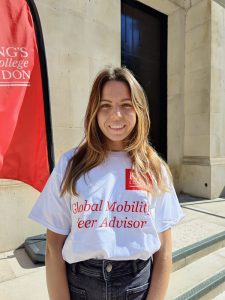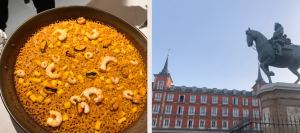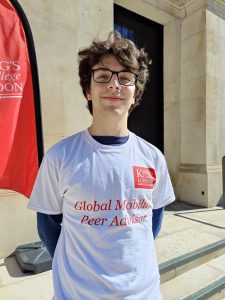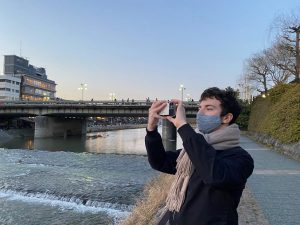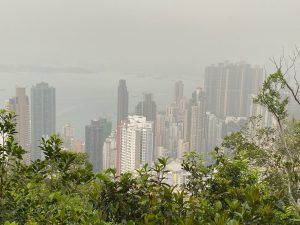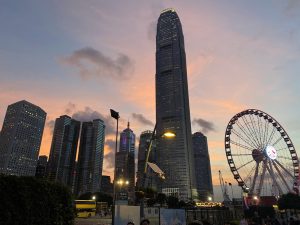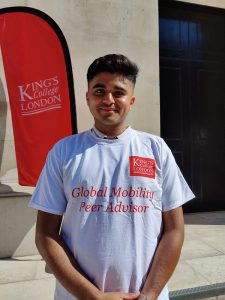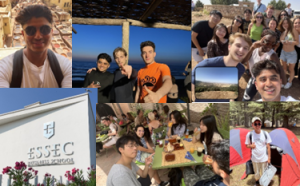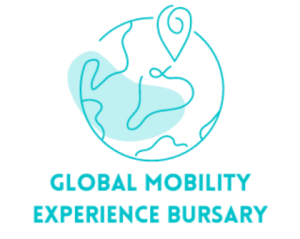
In our first blog post for our GMEB Student Success Stories, we hear from Barnett Yang who studied at King’s in January 2023.
Hello! My name is Barnett Yang, an exchange student from UC Berkeley in the sunny Bay Area of California. At my home university, I study honors computer science and mathematics, and I was an exchange student at King’s College London for the Spring 2023 semester.
As a second generation Chinese-American immigrant, I have scarcely traveled out of America and China, and have consequently developed a curiosity for European history and culture. Since attending college, I have come to realize that the history of both mathematics and computer science are inexorably linked to the history of the United Kingdom—the former being steered by the likes of Isaac Newton and Andrew Wiles, and the latter by the likes of Alan Turing and Tony Hoare. In many ways, the United Kingdom was the genesis of the industrial, technological, and information revolutions that define our world today. The net consequence was the realization that, if I did want to study abroad, I most definitely would like to do so in London.
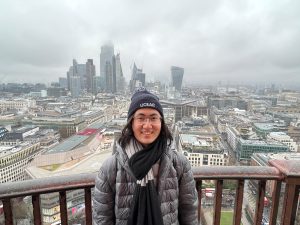
The Global Mobility Experience Bursary was a welcomed windfall, and the promise of the bursary is evident in its name: it gave me the mobility to explore my interests in London and Europe. With the bursary, I had the funds to travel up and down the island of Britain, from Edinburgh and Manchester, to Bath and Canterbury. I could satisfy my niche interests in Bletchley Park and the Bank of England Museum, while also being able to take trips to Paris, Rome, Stockholm, and Berlin.
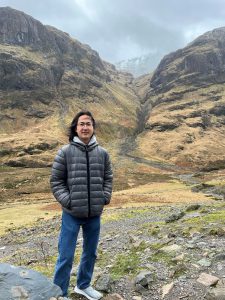
Britain is an absolute treasure trove for any student of computer science. In the environs of London is the famous Bletchley Park, known as the home of the Enigma codebreakers during the Second World War. I had an absolute blast exploring Bletchley Park and its multitude of exhibits (reassured, of course, with the knowledge that the GMEB would assuage its relatively pricey entrance fee). For instance, while the most famous machine developed at Bletchley Park is the “Bombe”, it is not, in fact, a computer, but rather a machine designed to cycle through various settings of the Enigma machine. Perhaps more relevant to the development of computing, and yet less well known, is the “Colossus”, a machine built to decrypt the Lorenz cypher in the waning years of the war. Bletchley Park is also a place of pilgrimage for fans of Alan Turing. There is a plethora of exhibits detailing his contributions to computer science, such as the Bombe, his own codebreaking work, and the inception of the Turing Machine.
And of course, I had to visit Manchester (via funds graciously supplied by the GMEB) and discover the city’s own contributions to computer science. It is well known that Alan Turing was based at the University of Manchester after the Second World War, yet I had little idea of the specific experiments and research conducted at the university. One example that I found particularly interesting was a machine known as the “Baby”. While the original machine no longer exists, a replica can be seen at the Manchester Science Museum.
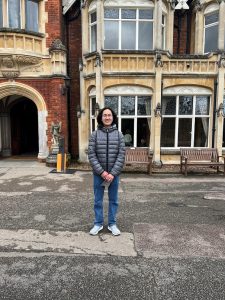
Ultimately, my time abroad was substantially enhanced both by studying at KCL and through the GMEB. London is a great launchpad from which to explore the rest of Britain and Europe, but it is a destination in itself and, I think, the most culturally and historically rich city in Europe while still remaining highly relevant in the 21st century.

